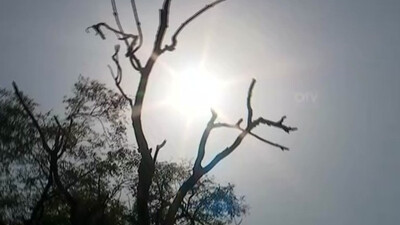"The request for Assange`s extradition has been lawfully made and his appeal against extradition is accordingly is dismissed," said Supreme Court president Nicholas Phillips.
The seven judges were split five to two but the majority ruling was that the Swedish prosecutor was a judicial authority and therefore allowed to issue an arrest warrant for him to be questioned on sex crime allegations.
Assange, 40, has been on conditional bail and is sought to be extradited to Sweden to face allegation of sex offences, which he denies. His lawyers had argued before the Supreme Court that the European arrest warrant against him was "invalid".
The implementation of the judgement has been deferred for two weeks, during which Assange`s lawyers are likely to seek reopening of the extradition case on the ground that the case had been decided on a point of law that was not argued by any side during the hearing.
Assange`s lawyer, Dinah Rose, had sought two weeks to decide whether to ask the Supreme Court to reopen the case, which has surprised legal observers. Assange was not in court today.
Legal commentator Joshua Rozenberg told BBC: "This is a very unusual thing. It`s not happened since this court was set up. It happened in the Pinochet case in the House of Lords. Very unusual, and means there`s everything left to play for still".
He added: "(He) can stay in this country for at least two weeks, while they consider making this unprecedented application to reopen the case on the basis that it was decided on a point of law in the Vienna Convention on the Interpretation of Treaties that was simply not argued by either side and which the court gave no notice to either the Crown Prosecution Service, representing the Swedish authorities, or Mr Assange`s lawyers, that they were considering taking into account".
Announcing the decision during a televised hearing, Phillips said the point of law which had to be considered had not been simple to resolve.
A press release on the judgement said: "The issue is whether an European arrest warrant (EAW) issued by a public prosecutor is a valid Part 1 EAW issued by a `judicial authority` for the purpose and within the meaning of sections 2 and 66 of the Extradition Act 2003?.
It added: "By a majority the court has concluded that the Swedish public prosecutor was a `judicial authority` within the meaning of both the framework decision and the Extradition Act.
"It follows that the request for Mr Assange`s extradition has been lawfully made and his appeal against extradition is accordingly dismissed". Assange has spent the better part of last two years fighting attempts to send him to Sweden, where he is accused of sex crimes.
Australian-born Assange denies wrongdoing, saying the sex was consensual, but has refused to go to Sweden, claiming he doesn`t believe he`ll get a fair trial there.
A lower court in Britain initially approved Assange`s extradition to Sweden in February 2011. An appeal to the High Court was rejected in November, but Assange subsequently won permission to appeal to the Supreme Court.












